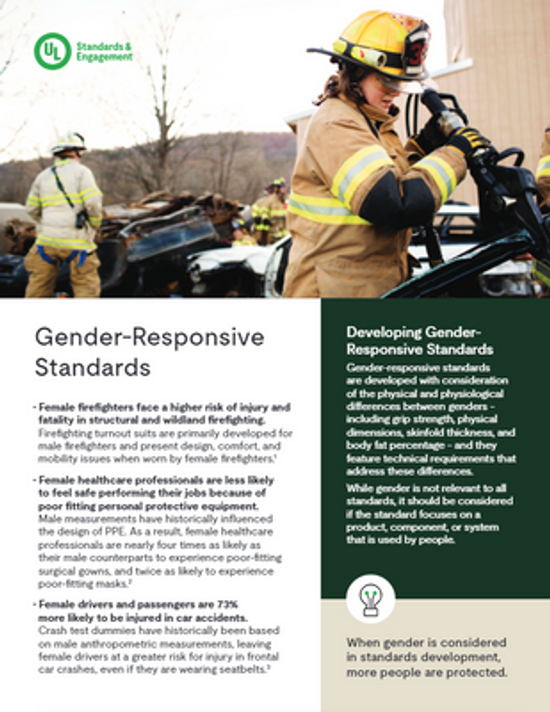Gender-responsive standards are developed with consideration of the physical and physiological differences between genders - including grip strength, physical dimensions, skinfold thickness, and body fat percentage - and they feature technical requirements that address these differences.
While gender is not relevant to all standards, it should be considered if the standard focuses on a product, component, or system that is used by people.
